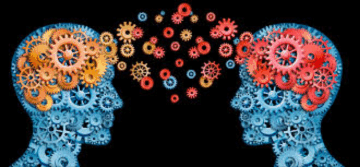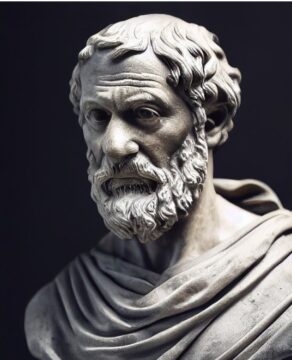by Marie Snyder
 In reading about attachment theory, David Wallin‘s description of Peter Fonagy’s work was intriguing, so I went down that rabbit hole. Fonagy developed Mentalization-Based Treatment (MBT) to improve emotional regulation, as distinct from Jon Kabat-Zinn’s Mindfulness-Based Stress Reduction (MBSR). Fonagy sees our mental development as relational, but in order to have empathy for others, we need awareness of our own feelings, which can be helped with mindfulness work. However, in looking at the evidence of efficacy of these separate modalities, I question the attempt, since Freud, to make psychology into a natural science. Each of the various ways to help are useful, but there’s an element of the unknowable in the way when we treat them scientifically.
In reading about attachment theory, David Wallin‘s description of Peter Fonagy’s work was intriguing, so I went down that rabbit hole. Fonagy developed Mentalization-Based Treatment (MBT) to improve emotional regulation, as distinct from Jon Kabat-Zinn’s Mindfulness-Based Stress Reduction (MBSR). Fonagy sees our mental development as relational, but in order to have empathy for others, we need awareness of our own feelings, which can be helped with mindfulness work. However, in looking at the evidence of efficacy of these separate modalities, I question the attempt, since Freud, to make psychology into a natural science. Each of the various ways to help are useful, but there’s an element of the unknowable in the way when we treat them scientifically.
According to Wallin, Fonagy’s focus was on developing the understanding of the mental states of others, which he calls mentalizing, to let us understand the depths of ourselves and others. For instance, it can help heal old wounds if we understand that dad’s rejection of us might be due to his depression and not our behaviour as a child. Other people’s reactions to us aren’t just caused by us, but there are always multiple factors at play affecting how people behave. It seems very similar to Theory of Mind. He met Bowby in the 1980s, and studied adults’ behaviour relative to their own descriptions of childhood attachment, and found, when comparing severely deprived to well-connected adults, that a weak attachment was correlated with a weak “reflective functioning” (the ability to understand behaviours in terms of their thoughts, feelings, and mental states). From this, he says psychotherapy should be the “effort to restore or kindle patients’ capacity to mentalize,” to simultaneously feel our feelings and reflect on their meaning. To help people develop mentalizing requires a relationship that mirrors and guides emotional responses.
His description of mirroring is specific: it must be “contingent and marked.” The reaction has to be accurate and not our own reaction to the other person’s upset, but an empathetic reaction with them. Read more »

